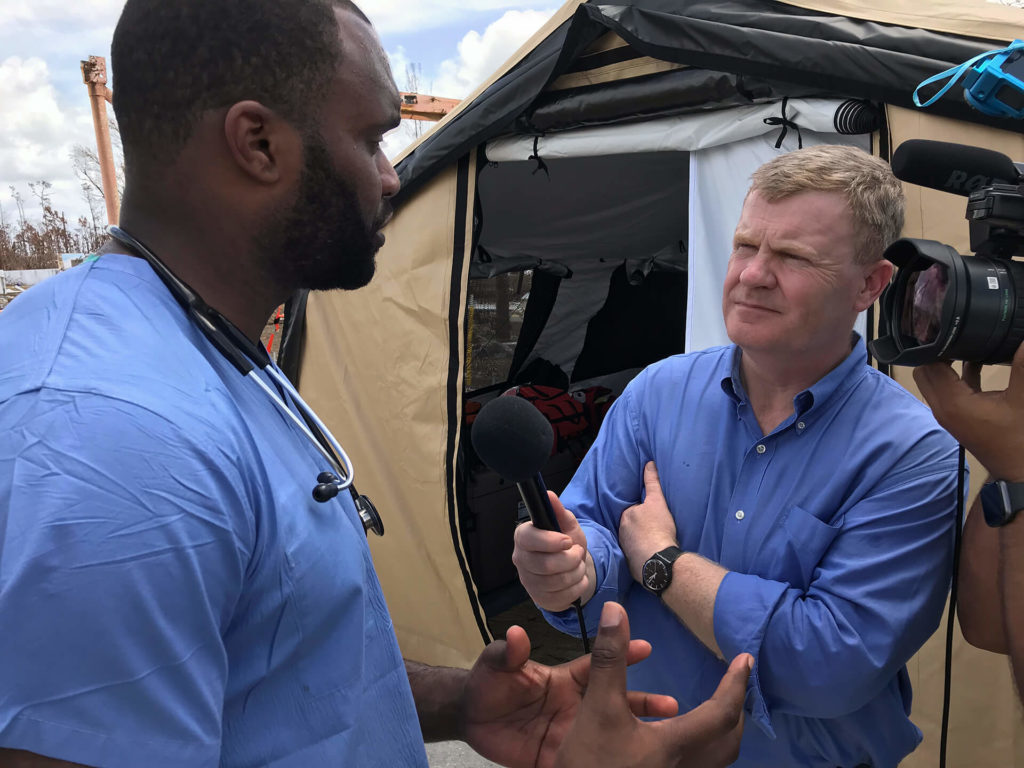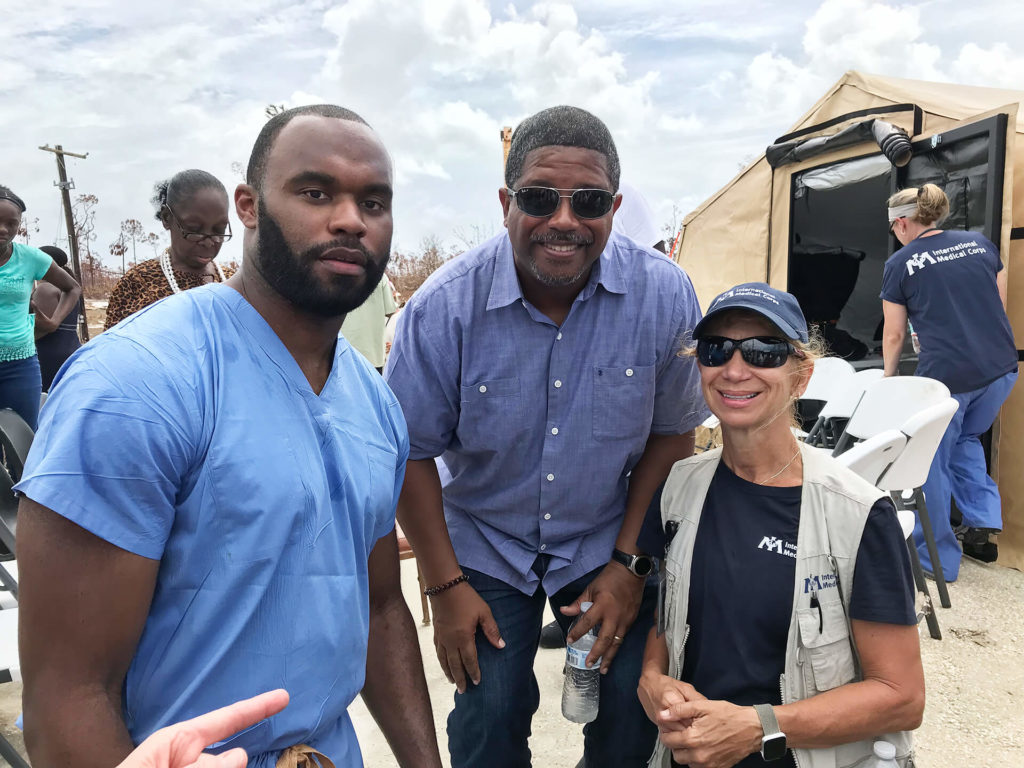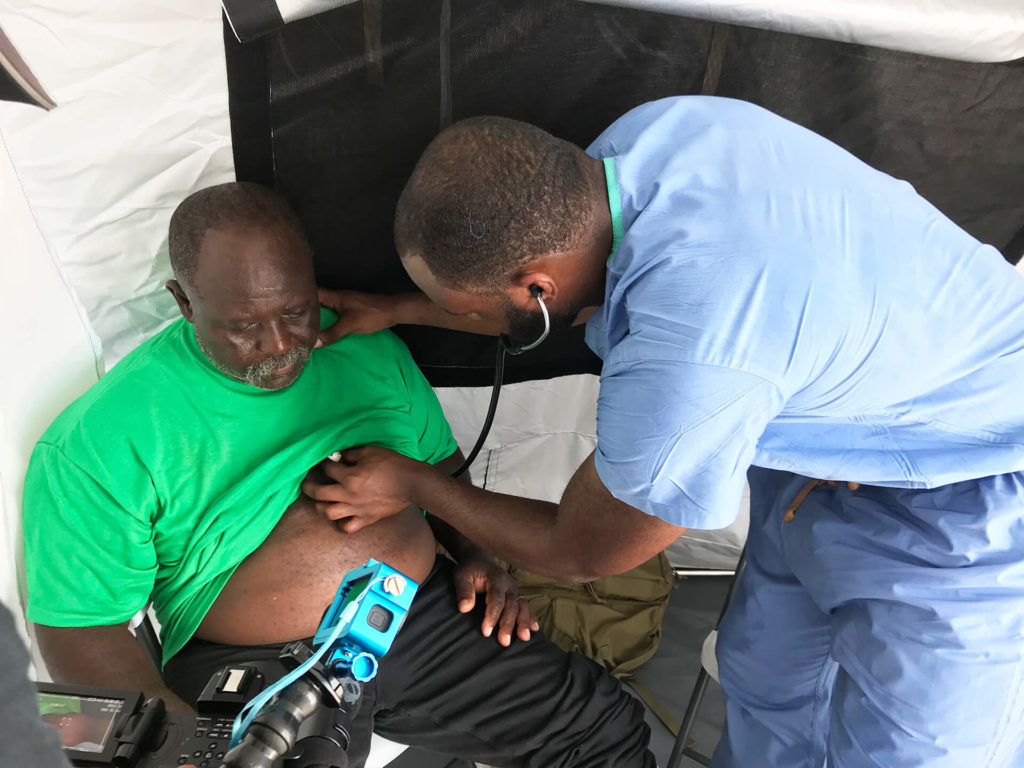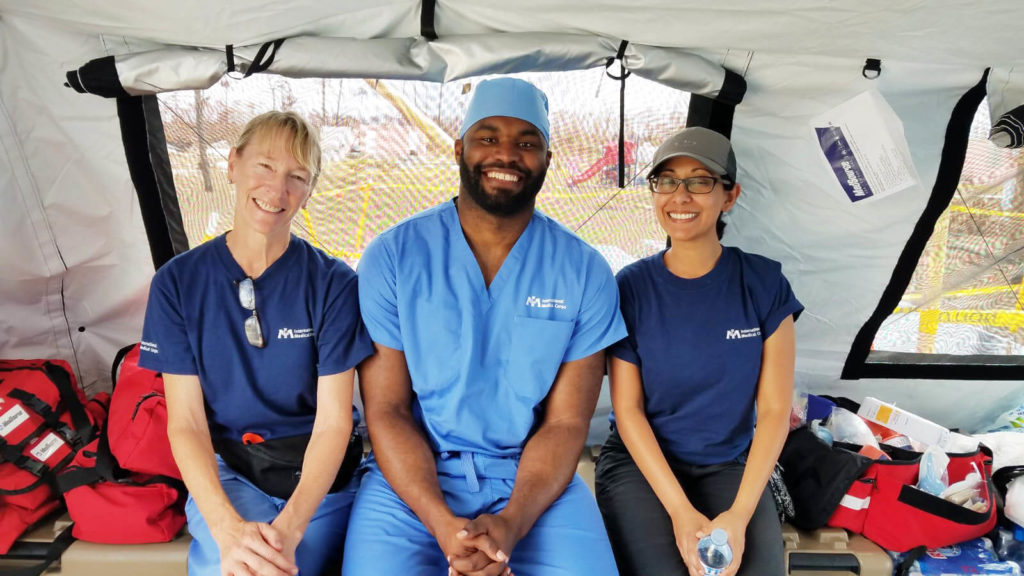It’s not often that a physician in the midst of a seven-year neurosurgery residency deploys on a humanitarian response mission. But Myron Rolle says he put his residency at Massachusetts General Hospital in Boston on a brief hold to join an emergency response by International Medical Corps in the Bahamas to care for survivors of Hurricane Dorian.
“I’m Bahamian,” he said in a recent interview. “When I saw the devastation from what had happened, I looked for a way to help. I have the skills to practice medicine and my country is hurting. I felt helpless sitting in my apartment in Boston. I knew I needed to be here.”

Rolle was put in touch with his hospital’s Global Disaster Response Team, which welcomed him to a group of other health professionals deploying to the Bahamas with International Medical Corps. As Rolle put it, “the next thing I knew, I’m here with a great team.”
Once in the Bahamas, it was quickly apparent that the 32-year-old doctor would be able to provide far more than medical care to his fellow citizens during a time of enormous need. His very presence—treating patients at our clinic in the community of High Rock, in hard-hit central Grand Bahama island—served as an inspiration to those he treated. Those who recognized him, learned of his presence by word of mouth or watched him being interviewed on two separate occasions by local television were buoyed that he had come.
The response was understandable. Yes, Rolle is Bahamian, but he’s also a considered a national hero in this small island country—a native son who has succeeded on the larger world stage. His accomplishments, together with his modest, respectful manner and obvious affection for the land of his birth, make him a source of national pride and a role model for thousands of young Bahamians.
As a student-athlete, he played Division 1 football at Florida State University, graduating in two and a half years before accepting a Rhodes Scholarship to study at Oxford University in Britain.
After spending three seasons in the National Football League, playing for the Tennessee Titans and the Pittsburgh Steelers, he returned to his alma mater for medical school, where he eventually tackled one of the most arduous trainings in medicine: neurosurgery.
According to Rolle, skills learned playing football also apply to neurosurgery. Each, he explained, requires dedication, intense preparation, precision and strong teamwork.
“When I walk into the operating theatre, I get the same adrenalin rush I had playing in front of 85,000 people,” he said.

During his two-weeks with International Medical Corps on Grand Bahama island, Rolle helped treat an array of conditions, including lacerations and puncture wounds, and tended to patients with non-communicable disease and chronic conditions, such as diabetes and hypertension.
It hasn’t hurt his image locally here that he was part of a team that erected our clinic—the first post-hurricane structure to rise from the rubble-strewn landscape that today covers much of High Rock. The clinic comprises two large tents, has its own electricity, communications and potable water, and provides the capacity to treat a range of emergency and chronic health and health-related conditions. The drinking water and sanitation facilities are shared with nearby residents.
Rolle said he has drawn strength from the public’s response to the storm, as the country faces the daunting task of rebuilding and starting again.
“The resilience, the spirit—the energy—of the people here has been uplifting,” he said, adding that he believed the clinic’s opening was as important psychologically for local survivors of the giant storm as it was medically.
“People see a structure here go up that wasn’t here before the hurricane, and it has an impact,” he noted. “It means a lot to them. It gives them hope.”

Although he left the Bahamas at age 3, when his family moved to New Jersey, Rolle says he grew up in a household that lived Bahamian values, ate Bahamian food and frequently returned to the islands on trips. He still feels very connected to the island nation.
“I was christened here, I was baptized here, I’m on a stamp here, so it’s very much a part of me,” he said. (As one of three Bahamians ever awarded a Rhodes Scholarship, his image appears on a stamp commemorating the Bahamas’ 50th anniversary of its 1973 independence from Britain.)
Aware that his study of the brain, spine and central nervous system could position him to help shed light on football’s traumatic-brain-injury crisis, Rolle said he’d very much like to help a sport that has done so much for him. But he also says he thinks for returning one day to the Bahamas.
“My father says, ‘Come back, run for public office, be a neurosurgeon here’,” he smiled, “but my mother says, ‘Stay in the U.S. Everything’s good in America’.”
Whatever his longer-term plans, Rolle said he was certain about one choice: “I’d love to help this country in any way possible.”
